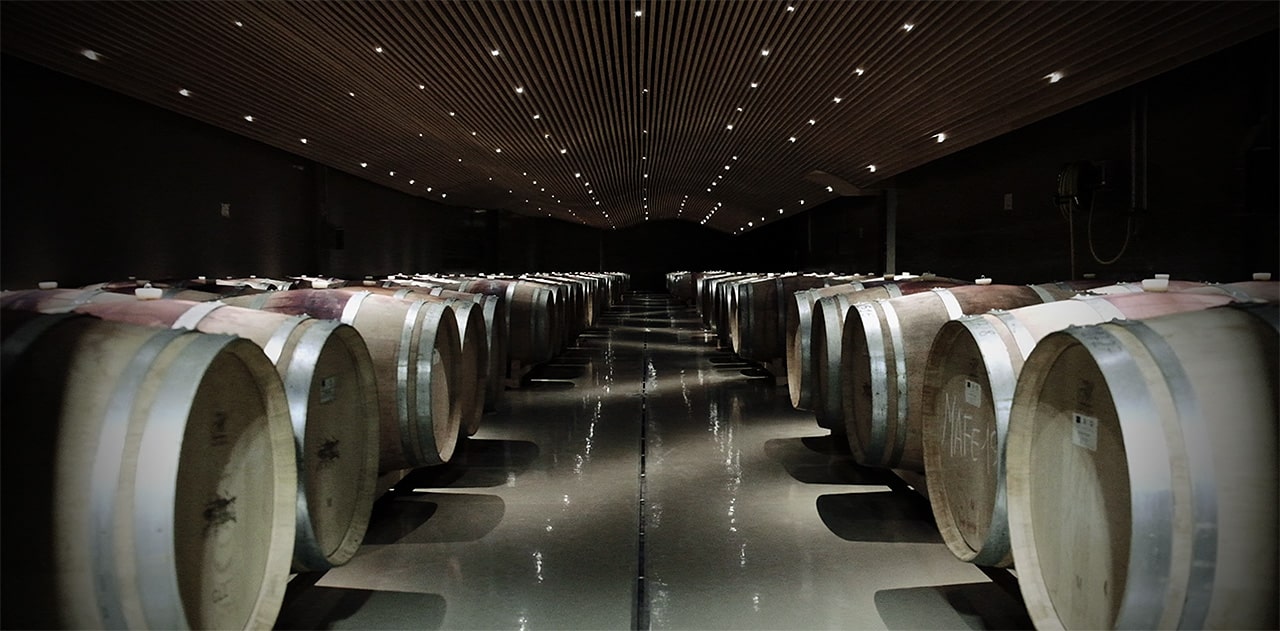Excellent mountain wines
From the rediscovery of Magliocco to a series of experiments aimed to recover Pollino wine identity, Ferrocinto company has been able to write its own success and development story.
This story is about local wines which are closely linked to the mountains that give them their names, namely Dolcedorme, Timpa del Principe, Serra delleciavole and Cozzo del Pellegrino. Those are some of the most symbolic peaks of Pollino massif, which give their names to some excellent Ferrocinto wines resulting from hard work on the terroir, that have been produced for decades in Castrovillari area, a zone which is particularly suitable for viticulture.
Here, history is intertwined with tradition and together they create an innovation which is able to witness the passion for both wine production and innovativeness.
The fortified Masseria.
Ferrocinto vineyards surround the picturesque Estate of Salituri Barons, which with its important history has become a very significant part of the inheritance of ‘’Vigne’’ area, in Castrovillari. The construction of this estate, which was originally conceived as a farmland, goes back to 1658. It is located in a very rich land, in the middle of the Conca del re property, surrounding the fortified quadrangular masseria (a very specific kind of farm, inhabited by the landowners, which includes lodgings for the peasants, stables, and warehouses for forage and crops), which also features some semicircular towers. This particular place has become the true heart of the company, together with a modern barrique cellar and a tasting room which is the true symbol of the wine production experience: here, innovation is combined to solid tradition.
It is in this specific area, which was occupied in the past by the Oenotrians (who targeted the plain of Sibari lands from the Mountain range of Pollino) that Nola family created an authentic Mediterranean business. It has an ‘’extremely significant potentiality’’- says Luigi Nola, President of the Ferrocinto group – which has been able to reach distant countries’ markets, such as Japan and Australia, with his high-quality products.
Territorial Awareness
The Pollino National Park (the vast natural heritage that surrounds Ferrocinto vineyards) requires responsible choices such as organic cultivation and a work of man which has to be in complete harmony with nature, preserving the characteristics of the terroir. Each and every choice is the product of the perfect synthesis of secular tradition and technological innovation. From the vineyard to the work in the cellar, the production processes blend with the environmental sustainability through the production of bioenergy by the use of by-products of wine-making and photovoltaic panels.
The special attention to the territory is reflected in the choice of minimally invasive techniques for the production, intervening only when strictly necessary, precisely in order to protect the natural characteristics of wines. The combination of these specific strategies allowed Ferrocinto to receive the ‘’Ecofriendly’’ award of the ViniBuonid’Italia guide.
Lately, Ferrocinto company has invested in an experimental field, with the assistance of the University of Palermo, for the protection of ancient genetic populations which contributes to promote the unique qualities of the Calabrian ampelographic heritage, and which is part of the revival and awareness process undertaken by the company.
Magliocco and other wines
Among the vineyards overlooking Pollino massif, which are located at 500 meters above sea level in an area characterized by a generous soil and a good climate, great importance is given to «the enhancement of Magliocco» – says Nola. The company started the procedure, together with the consortium Terre di Cosenza, to recognize this specific grape variety as one of the most important ones in Calabria, and specifically in Cosenza area.
However, alongside this grape variety, Ferrocinto undertook also an ongoing effort to rediscover some white wines made from autochthonous white grapes such as the Montonico, the Pecorello and the white Greco. This choice was made specifically highlight that Pollino area is naturally suitable for this specific kind of productions. This precise strategic willingness aims to «enhance the resources, and to reinvigorate a wine making tradition – says Luigi di Minco, agronomist of the company – a tradition which is grown and rooted in the flavors of a territory», with grapes that grow in the shadow of the mountain.
Luigi Di Minco | Agronomist Ferrocinto
Luigi Nola | Ferrocinto






